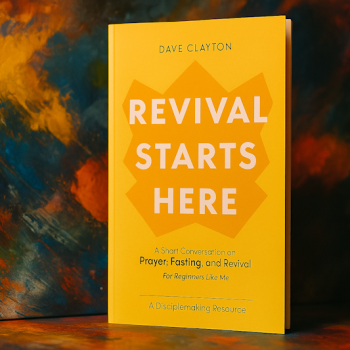
In a digital world, I fear that we have forgotten what it means to be rooted in reality. As I grew up, I found myself fascinated by sci-fi films depicting interconnected computer systems. The computer systems in movies like Star Trek and War Games differed radically from the ones I used at school, inserting black, floppy, five-inch disks to play games like Moon Patrol, Number Munchers, and Oregon Trail. Although we understood that computers would be an inescapable part of the future and their advancements would be incomprehensible, I’m not sure if the average student and consumer fully grasped how connected they would make us. We certainly didn’t anticipate that our cell phones would carry more computing power than anything we used at a consumer or educational level up to that point. These days, rewatching many of these old movies with my family, I’m amazed at how we’ve surpassed predicted benchmarks.
An unpredicted platform.
Through these somewhat expected technological advances, we’ve been given more than just a sense of connection and more computing power. We are no longer rooted in reality. In essence, we’ve been given something I didn’t see the sci-fi movies predict – personal platforms and stages. We even refer to these sites as social media platforms. Our lives, or timelines, have become personal platforms on which we can communicate our convictions, beliefs, lies, suspicions, and problems on a global scale. We can do more than just engage with the news through commentary; we can become the media and news, for better or for worse, as it is shared and engaged with by those we know and don’t know. Social media, another unpredicted aspect of the future for me, has seemingly given us platforms of voice and opinion that are often unchallenged. The invention of social media has elevated every voice, given everyone a stage, and built a place of notoriety for anyone who wishes it. In addition to social media, there are platforms created by uncontested and unaccountable blogs, podcasts, creative accounts, artistic portfolios, and more.
An inherent rewiring and reprogramming.
Our world is now shaped by likes and followers, and we shift that shape to acquire more of these rewards – consciously and unconsciously. Those interactions, priorities, and online realities now follow us offline into our daily interactions and have transformed the way we perceive each other, interact with each other, and relate to the offline, external world around us. When looking at the personal platforms of friends and strangers, we often find ourselves in a shadowy game of comparison over quality and levels of engagement. We live in a world in which distance is no longer measured by miles but by the time it takes for information to travel. For some reason, for me at least, it seems that although we have become overly critical and judgmental, there has been a great disappearance of honest and integral critical thinking and judgment. The gigabytes and terabytes of cloud-based photos, information, and oversharing that our social media holds seem so far from the days of 3.44 storage discs that could hold a mere 1.44 megabytes. Don’t mishear me, I love the connection and I appreciate the good of these platforms. I think we have a way of encouraging and helping people like never before. Though so much good has come from such an equalizing and accessible source, the endless access to information and opinions also transforms our identities and thoughts in unhelpful ways.
In a connected world, with accessibility to so much good information and to others, where platforms have made differences and shared important information, I also recognize how I am being reprogrammed and rewired in undetectable, unpredictable, and unconscious ways. I am not walking away from technology or social media, but I want to be intentional with my approach to it. As a result, this week, I have been reflecting on this, and that has led to me think as well to what Paul’s timeless wisdom and challenge in 1 Thessalonians 4:11-12 might say to a world of digital platforms and busybody connections. In what ways does Paul’s timeless challenge to lead a quiet life and mind your own business translate into a world in which many digital platforms are amplifying our lives and inherently placing us in the middle of others’ business? At the same time, how do these platforms hinder or support his challenge to work with our hands in a way that we are not dependent on anyone, not dependent on their likes and followers to their subscription or GoFundMe donations? Even more, what does it mean to digitally model a daily life that others respect? Even more, perhaps this causes us to reflect on our intentions, hopes, and whys behind our blogs, social media usage, and interconnectedness.
Staying Rooted in Reality.
I imagine Paul writing to us today, issuing the same challenge of 1 Thessalonians 4:11-12 but contextualized in our world. In this way, I imagine him challenging us on what it means to intentionally commit to living quietly offline first, and online secondary. If we utilize digital platforms, I imagine Paul suggesting that the point of our digital timelines is not to live noticeably out loud, but rather to find a way to reflect the way we live into our true selves offline. Perhaps Paul would tell us to work with our hands, offline, in a way that keeps us rooted in reality and in the natural world. Even more, I think Paul would say not only let this quiet way of life be reflected online (if you choose to mirror your life there) but even more offline so that it is a noticeable prophetic witness to those who live differently around you. Live in a way, he might suggest, that shows disconnection from the frantic and overwhelming nature of being so connected and busy and models a connection to the divine and to stillness. Paul would still tell us to not be dependent on likes, followers, approval, or engagements. Rather, I think Paul would say, if you choose to be online, know it is the Spirit leading you to do so, and just be who God has called you to be and live by the Spirit of God in a way that takes no vested interest in the outcomes of your platforms. All of these challenges from Paul would be rooted in the practice and act of love, just like it was originally written in 1 Thessalonians 4, where Paul tells the church to be rooted in what it means to “love each other” (1 Thessalonians 4:9).
A challenge to reflect.
In navigating the ever-evolving landscape of digital platforms and interconnectedness, it’s crucial to maintain a sense of intentionality and mindfulness – a rooted in reality state – and even more independence and stillness. While our technological advancements offer immense opportunities for connection and communication, they also pose challenges to our sense of identity and authenticity. Reflecting on the timeless wisdom of Paul in 1 Thessalonians 4:11-12, we’re reminded of the importance of leading a quiet life and minding our own business, both offline and online. This isn’t a call to disconnect entirely but rather to find balance and rootedness in reality amidst the noise of digital platforms. Perhaps, as we engage with these platforms, we can strive to reflect the values of authenticity, humility, and genuine connection – may they not be a life of their own but a reflection of a life lived well in the real world. Let us be guided by the Spirit of God, which is a spirit of love, as we navigate the digital realm, ensuring that our online presence aligns with our true selves and serves as a beacon of light and authenticity in a world often overshadowed by comparison and validation-seeking. Ultimately, it’s in cultivating genuine connections and living out our values both online and offline that we can truly embody the love and wisdom espoused by Paul in his letter of 1 Thessalonians.
I invite you to reflect on these question questions with me:
- What is my why for being on these platforms? Examine your motivations for engaging with digital platforms. Are you seeking a genuine connection, sharing valuable content, or promoting your interests and passions? Or are you driven by a desire for validation, comparison, or escapism? Clarifying your intentions can help ensure that your online presence aligns with your values and contributes positively to your life and the lives of others.
- Am I mindful of my own business online? Evaluate whether you’re respecting boundaries and privacy, both your own and others. Are you intruding into others’ lives unnecessarily or getting caught up in gossip and drama?
- What role do digital platforms play in my sense of self-worth and identity? Explore how your reliance on likes, followers, and validation from digital platforms affects your self-esteem and perception of self-worth. Are you seeking external validation to define your worth, or do you find intrinsic value in who you are apart from online metrics?
- How can I use digital platforms as a tool for positive influence and connection? Consider ways to leverage your online presence for meaningful engagement, advocacy, and building authentic connections. How can you use your platforms to spread positivity, share valuable insights, and foster genuine relationships, rather than getting caught up in superficial metrics and validation-seeking behavior?
- Should I disconnect? Reflect on whether the benefits of your digital presence outweigh the drawbacks. Consider whether taking breaks from social media or limiting your online activity could improve your well-being and mental health. Are you finding balance in your digital usage, or do you feel overwhelmed and consumed by it?
- Am I living a quiet life online? Reflect on the noise and busyness of your digital presence. Are you contributing to the constant stream of information and opinions, or are you intentional about maintaining a sense of quietness and reflection?
- How does my online presence reflect my offline values? Consider whether your behavior and interactions on digital platforms align with the values and principles you uphold in your offline life. Are you being authentic to yourself in both realms?
Paul’s challenge to live a quiet life is not about living healthy habits or earning favor with others. It is not some ethical or moral invention. Rather, it is about being rooted in a life that embodies, demonstrates, and announces the goodness and good news of God. Our use of digital platforms can reflect reality for us, but they also must be driven by a Spirit-led desire to cultivate a reflection of the way we are embodying, demonstrating, and announcing the goodness and good news of God to the world around us. That isn’t something we do, it is not a platform, but rather it is a reflection and mirror of who we are. It is not a tactic for likes and follows, Jesus doesn’t need our platforms. I would argue more transformative work has been globally spread offline than online. This also means our platforms, should we stay connected, are more than our political convictions and appetizing meals. Our digital platforms cannot be the first step forward, but rather a reflection of what is rooted in reality.













